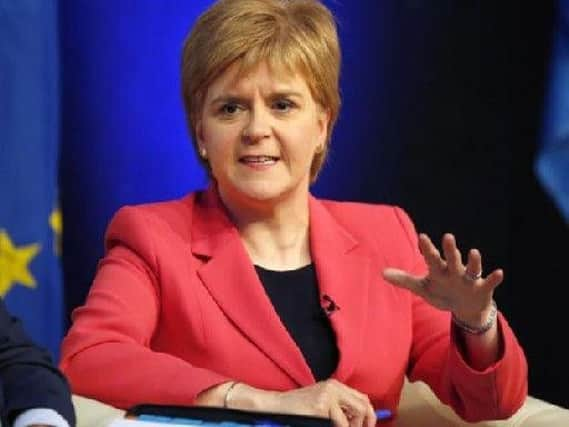What happens if Holyrood and Westminster cannot strike a Brexit bill deal?


Nicola Sturgeon and her Welsh Assembly counterpart Carwyn Jones had been in lockstep in their opposition to Theresa May's Brexit Withdrawal Bill proposal.
The furore surrounds more than 100 powers which are currently devolved to Scotland and Wales but are in practice overseen by Brussels.
Advertisement
Hide AdAdvertisement
Hide AdThe fate of those powers, which cover areas such as farming and fishing, has been the subject of fierce debate.
Concessions have already been made by Downing Street
Earlier this year Theresa May made substantial concessions, agreeing to hand over the majority of powers to the devolved governments immediately.
All the parties are also agreed that some laws should be made UK-wide so that regulations, in food labeling for instance, are universal across the country.
But until this week Mr Jones and Ms Sturgeon opposed the Prime Minister's "sunset clause" proposal - whereby Westminster would initially control the remaining policy areas on the condition they are all handed over by 2026.
Mr Jones' has now accepted the plan leaving the Scottish Government increasingly isolated. Ms Sturgeon and her Brexit minister, Mike Russell, have dubbed the issue a "matter of principle" and are unwilling to compromise.
On Tuesday Nicola Sturgeon tweeted: "Scottish Parliamentary powers on vital matters could be restricted for up to seven years without our consent. The Scottish Government will not recommend consent to that - but we have put forward solutions that would form the basis of a deal."
They fear that giving Westminster control of policy issues for up to seven years could create a legislative logjam in Edinburgh when MSPs would have their hands tied. Mr Russel has also warned that it is impossible to forecast who would be in Downing Street in that time, and how the political climate could change.
The Scottish Government has already launched a contingency plan - the Continuity Bill. This means, in the eventuality that no deal can be reached on the Withdrawal Bill, Scotland will take all the powers for itself. This is Nicola Sturgeon's strongest leverage and is currently being challenged in the Supreme Court.
Advertisement
Hide AdAdvertisement
Hide AdWhat would happen if Holyrood and Westminster cannot strike a Brexit bill deal?
The Scottish Government has put forward two proposals. Either drop Clause 11 - the bit of the Bill covering devolved powers - and replace it with a written agreement between Holyrood and Westminster that neither government will legislate in the policy areas until everything is finalised.
Or stick to the current rules and regulations - in other words, any change in individual laws would require mutual consent.
There is small window of time for a compromise to be reached and for Scotland to consent to the bill but the deadline is mid-May ahead of the Third Reading in the Lords.
If the deadlock cannot be broken either the Continuity Bill is upheld by the Supreme Court and Holyrood gets the powers from Brussels. Or the court strikes the bill down and Westminster can use its power to legislate for the whole of the UK without Scottish consent.
Ultimately the UK Government does not have to reach a deal with Holyrood - they do not need Ms Sturgeon consent to take the powers back from Brussels. But if no compromise is struck, it could spark a fresh constitutional crisis.
Written by Joshua King